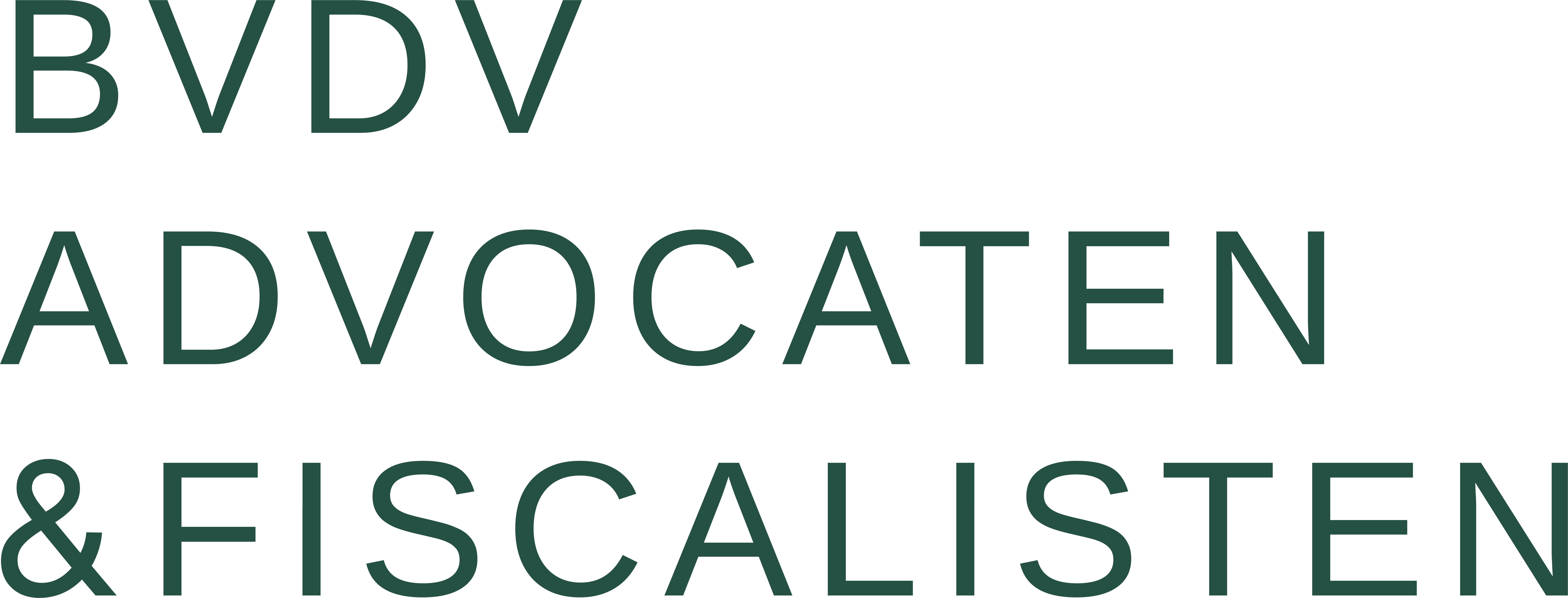

BVDV advocaten & fiscalisten

Utrecht, Netherlands The
January 2015
Legal activities
Service with Minor Environmental Footprint
Netherlands The
BVDV Advocaten & Fiscalistenhas the relevant knowledge and experience to assist and advise entrepreneurs in all manner of legal issues and disputes they may face. The BVDV team is made up of specialised attorneys and tax advisers who are able to advise businesses and private individuals in civil law and taxation issues. They offer a one stop shop for enterprises, with experts in Corporate law, M&A, Tax, Finance, Restructuring & insolvency law, Liability, Employment and Commercial contracts. BvdV operates on trust and transparency. In respect for their employees, they are 100% transparent, both regarding organisational and financial topics, including salaries and business results. Each and every employee has an understanding of and a say in the direction of the organisation. At BvdV, the emphasis is on cost reduction rather than turnover. In fact, rather than turnover targets, they have a turnover cap. In order to offer every employee an equal opportunity to succeed, BvdV has chosen to limit the period of share ownership, thus safeguarding promotion opportunities for all. After all, employees must have a realistic shot at share ownership, which, in turn, means that talent is kept in house. BvdV is always looking for collaborations with B corps and other impactful businesses.
Overall B Impact Score
Governance 17.4
Governance evaluates a company's overall mission, engagement around its social/environmental impact, ethics, and transparency. This section also evaluates the ability of a company to protect their mission and formally consider stakeholders in decision making through their corporate structure (e.g. benefit corporation) or corporate governing documents.
What is this? A company with an Impact Business Model is intentionally designed to create a specific positive outcome for one of its stakeholders - such as workers, community, environment, or customers.
Workers 40.2
Workers evaluates a company’s contributions to its employees’ financial security, health & safety, wellness, career development, and engagement & satisfaction. In addition, this section recognizes business models designed to benefit workers, such as companies that are at least 40% owned by non-executive employees and those that have workforce development programs to support individuals with barriers to employment.
Community 22.3
Community evaluates a company’s engagement with and impact on the communities in which it operates, hires from, and sources from. Topics include diversity, equity & inclusion, economic impact, civic engagement, charitable giving, and supply chain management. In addition, this section recognizes business models that are designed to address specific community-oriented problems, such as poverty alleviation through fair trade sourcing or distribution via microenterprises, producer cooperative models, locally focused economic development, and formal charitable giving commitments.
Environment 9.6
Environment evaluates a company’s overall environmental management practices as well as its impact on the air, climate, water, land, and biodiversity. This includes the direct impact of a company’s operations and, when applicable its supply chain and distribution channels. This section also recognizes companies with environmentally innovative production processes and those that sell products or services that have a positive environmental impact. Some examples might include products and services that create renewable energy, reduce consumption or waste, conserve land or wildlife, provide less toxic alternatives to the market, or educate people about environmental problems.
Customers 2.6
Customers evaluates a company’s stewardship of its customers through the quality of its products and services, ethical marketing, data privacy and security, and feedback channels. In addition, this section recognizes products or services that are designed to address a particular social problem for or through its customers, such as health or educational products, arts & media products, serving underserved customers/clients, and services that improve the social impact of other businesses or organizations.